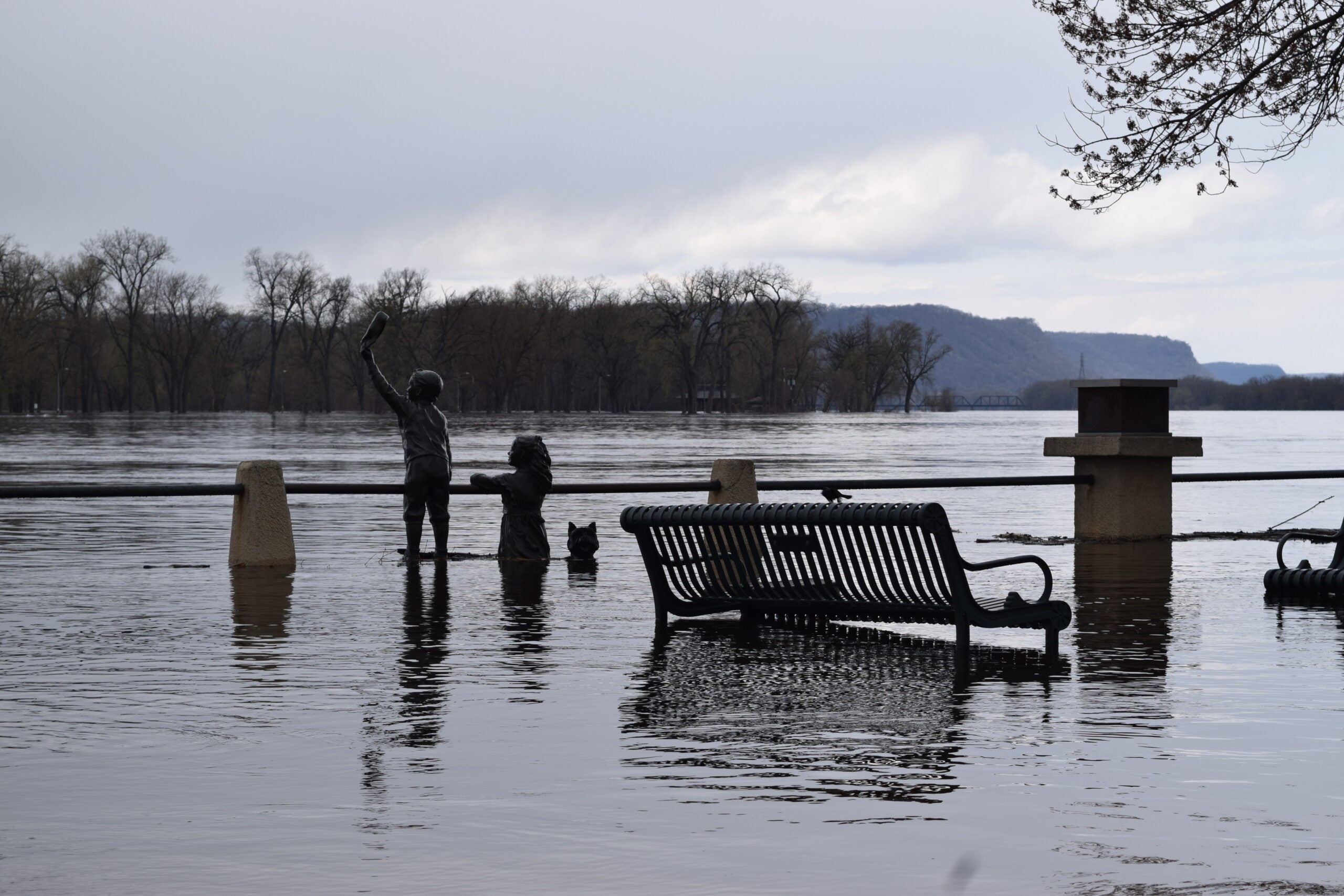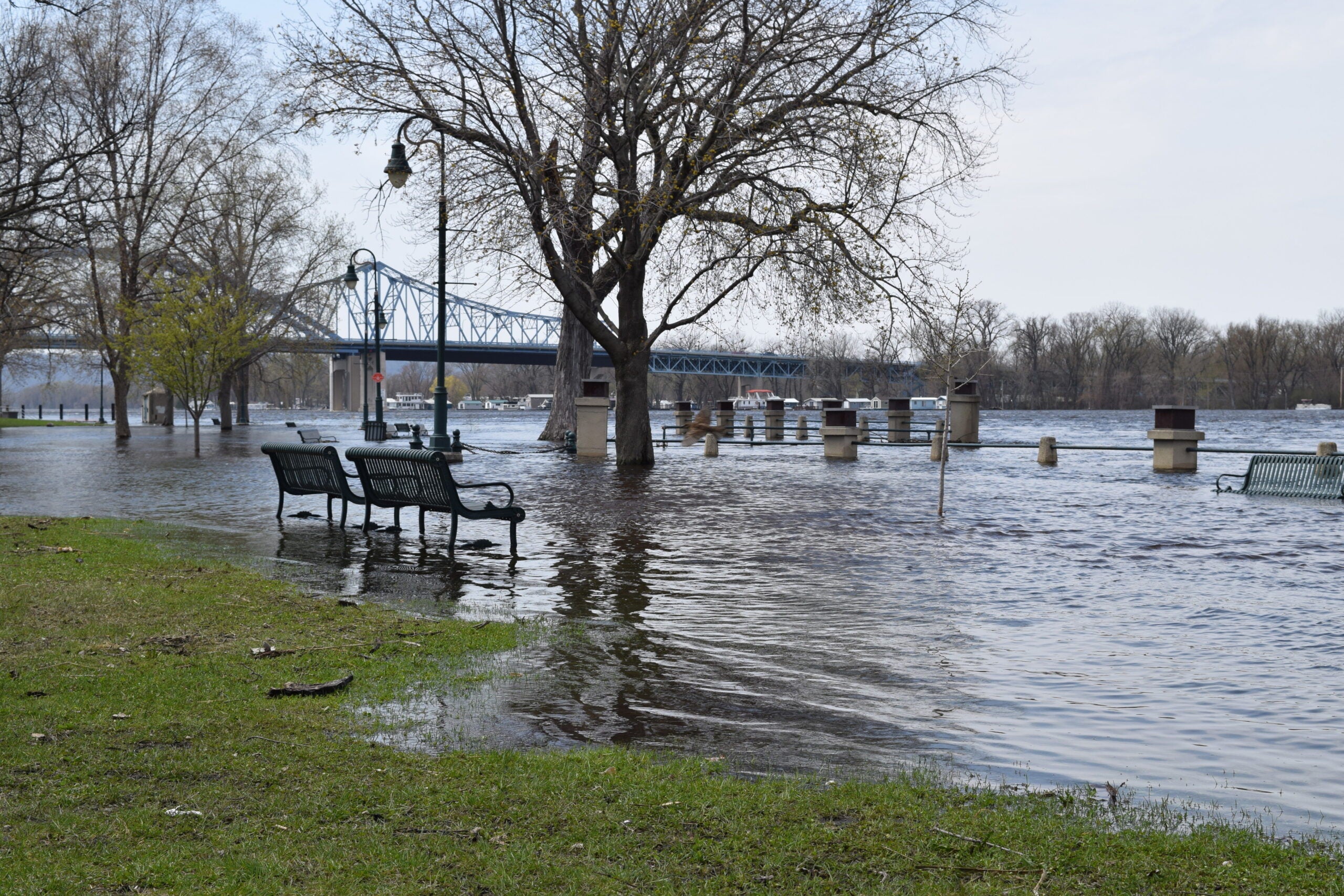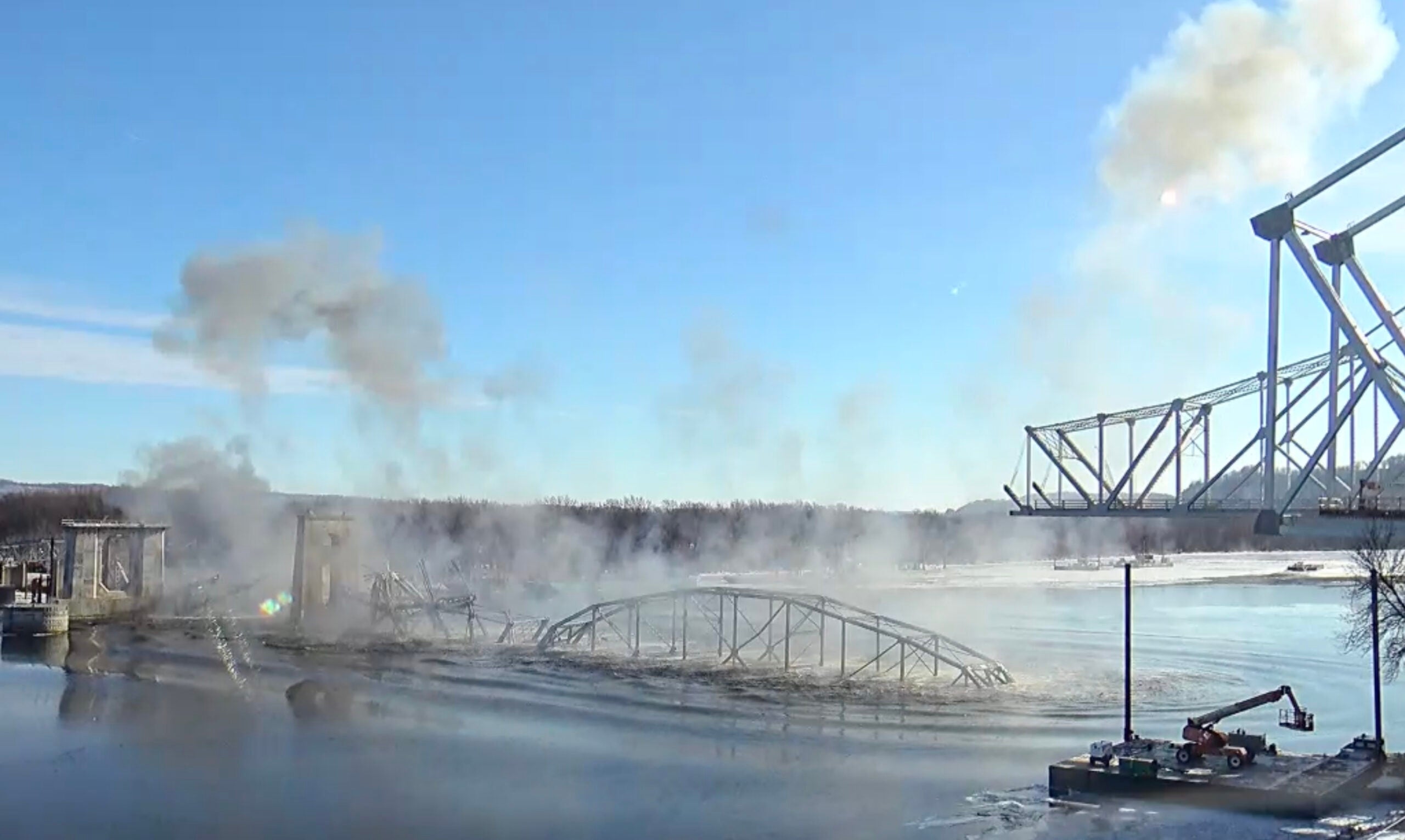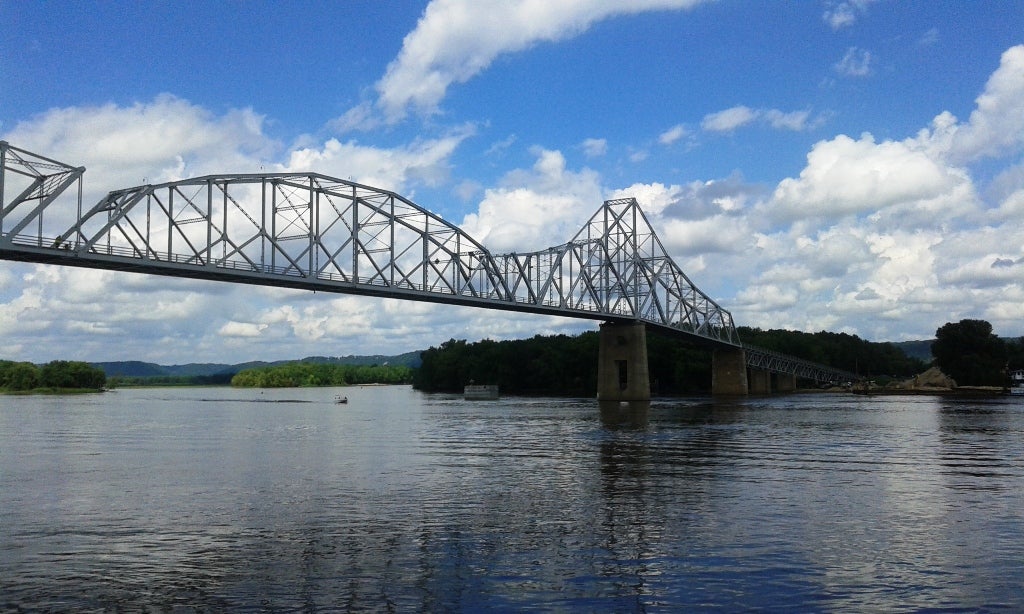Frequent rains have caused moderate to major flooding throughout the upper Mississippi River this summer.
But La Crosse Mayor Mitch Reynolds said these types of flood events are less of a problem than they once were.
“Cities like mine have, over the last several years, started to put in place infrastructure to better handle high water events,” said Reynolds, who co-chairs the Mississippi River Cities and Towns Initiative.
News with a little more humanity
WPR’s “Wisconsin Today” newsletter keeps you connected to the state you love without feeling overwhelmed. No paywall. No agenda. No corporate filter.
The association of mayors from river communities held a call with reporters Thursday to talk about how they’re handling this summer’s high water and to share thoughts about a future of more frequent flooding thanks to climate change.
The National Weather Service reported the average stage of the Mississippi River in La Crosse was the second highest level on record for the month of June. River levels have declined in recent days, falling from moderate flood stage to minor at La Crosse on Thursday morning.
Reynolds told reporters it’s unusual to see flooding on the Mississippi in summer. High water events typically come after the annual snowmelt in the spring. But he said cities like La Crosse, along with environmental groups, are preparing for a future with more unpredictable or severe flooding.
“(We’re) working with Ducks Unlimited to identify flood water storage areas in the City of La Crosse and up and down the Mississippi River,” he said. “So that when we do have these high flood events, we are better able to store water, move water around with our water lift stations, that type of thing.”
This year, Reynolds said the region was ready to absorb the excess water because of prolonged drought conditions in recent years. He said it’s the first time since 2022 that there has been no drought in the larger Mississippi River corridor, adding that “in some ways, the precipitation is welcome.”

Leaders of river towns look for support from flooding, drought
River communities are not the only ones changing how they approach flooding. The Federal Emergency Management Agency announced this week that structures like schools or bridges being rebuilt after a flood must be rebuilt to prevent future flood damage.
Colin Wellenkamp, executive director of Mississippi River Cities and Towns Initiative, said his organization supports policies meant to prevent repetitive losses, as long as communities are given flexibility to pursue new solutions.
Wellenkamp told reporters that communities also need more federal support when water levels fall. He said the prolonged drought over the last two years cost the Mississippi River region an estimated $26 billion.
“Several of our states have attempted to get disaster declarations for drought and intense heat,” he said. “The drought ones have been denied again and again and again. So we need to address this.”
While this summer’s precipitation has been a welcome reprieve, weather experts say seeing a return of drought conditions is not out of the question.
National Weather Service meteorologist Anna Wolverton said that this point of summer is typically a drier time of year for the region. The agency’s outlook for the rest of summer shows above normal temperatures are likely for much of the upper Midwest.
“Should we see any periods with above normal heat over the Midwest especially, we could see some rapid onset of drought begin,” Wolverton told reporters. “If or when that happens, soils will dry out much more quickly. The streams and tributaries will begin to dry up and that all leads downstream to the Mississippi River.”
Wisconsin Public Radio, © Copyright 2025, Board of Regents of the University of Wisconsin System and Wisconsin Educational Communications Board.







